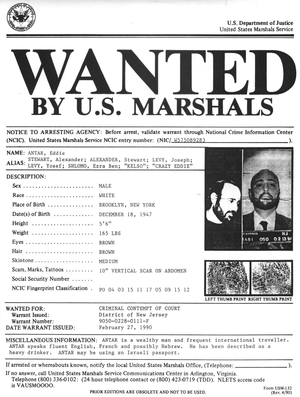
Today our guest is the Honorable Judge Hopkins.
Judge, would you introduce yourself to everyone?
Judge Hopkins-
My name is Bill Hopkins and I have been in the legal profession since 1971. I have been a civil attorney, criminal defense attorney, prosecutor, administrative law judge, and trial court judge, all in the state of Missouri.
Fiona -
This article is "Jury Nullification in Criminal Trials" which is not something I've ever heard of before. But you're going to walk us through this new way of twisting our plots. I'm just going to let you have free rein.Judge Hopkins -
Doug Linder wrote an article about jury nullification, which I recommend to you. It’s found HERE
“Jury nullification” is a fancy legal term for what happens when a jury doesn’t buy the prosecutor’s reason for the state’s case even though the defendant is truly guilty of a crime. In other words, the jury cancels the effect of a law that they don’t like. The law may be in their minds immoral or unfair or wrongly applied to the defendant (the one on trial).
Now, as a writer, you could develop a thousand or more plots just on the information set out above. For example: Is there a defendant who admits to killing his ailing wife who was suffering from terminal cancer and was in pain so extreme that no drug could alleviate it? A jury may have a great deal of sympathy for the surviving husband. The jury lets him go although he is definitely guilty of murder. But, wait! A month after the trial, a juror finds out that the “grieving husband” had his wife take out a million dollar life insurance policy when she was healthy. The insurance carrier has paid off. Now the defendant is going to Belize with his sweetie who he’d been seeing long before his wife got sick. The informed juror convinces all the other jurors to help him kill the grieving husband. The Case of the Informed Juror. Sounds like an Agatha Christie plot. Or maybe Perry Mason.
Linder, in the article cited above, asks if juries have the right to nullify. Juries clearly have the power to nullify. But that doesn’t mean they have the right to nullify. If the jury in a criminal case finds a defendant not guilty (which, by the way is not the same as “innocent”) then the state can never prosecute the defendant again. The Fifth Amendment to the Constitution states (in part) that no person shall “...be subject for the same offense to be twice put in jeopardy of life or limb....” The state is allowed to try a defendant only once.
Today, courts not only don’t want to tell juries that they can nullify (or cancel) a criminal law they don’t like, they are often actively discouraged to nullify. In Missouri, for example, jury nullification is not allowed. Things could be different in whatever jurisdiction you’re writing about. Checking with the state bar in the capitol would be the best way to find information about legal questions where you live.
Judges in Missouri instruct jurors that it is their duty to apply the law as it is given to them, whether they agree with the law or not. And, I suspect, it would be reversible error for a defense lawyer in my state to use jury nullification in a closing argument for a client.
The Case of the Unwelcome Snitch. Another plot might be that a jury really wants to free a person who is clearly guilty. One of the jurors who wants to send the defendant to prison, sneaks a note to the judge, explaining that the jury’s deliberations are wandering into forbidden territory. There’s a hung jury and later the snitch is found dead behind the courthouse, beaten to death with the judge’s gavel. That’s kind of flimsy, but you get my drift.
Linder reports that many legal scholars “have suggested that it is unfair to have a defendant's fate depend upon whether he is lucky enough to have a jury that knows it has the power to nullify.”
I won’t comment whether I think jury nullification is fair or unfair. However, I know that judges worry that courtrooms will become hotbeds of anarchy if jurors are told they have the power (but not necessarily the right or duty) to nullify a law. Judges also worry that jurors do not have the legal training to decide what the law is or isn’t. Jurors should decide facts only and apply the law that the jury instructions give them, whether they agree with the law or not. That’s what most judges (I suspect) believe today.
As I said, this is an article about criminal trials. Today, in America, there is very little control over prosecutors, who, in some ways, have more power than judges do. I was a prosecutor once. I could’ve announced in the newspapers that I was investigating Suzy Saintly Citizen for smuggling dope from Canada. There would be a flurry of news. Then I could say, “Sorry. There’s not enough evidence to charge Suzy Saintly Citizen for this serious crime.” If I were a deceitful prosecutor and knew she had never so much as stepped on a crack in an attempt to break her mother’s back when she was in kindergarten, I have now ruined her reputation. Nothing could be done to me as a prosecutor. Note that everything I said to the newspaper was true: (1) I’m investigating a leading citizen of the town, and (2) I’ve decided that there’s not enough evidence to charge her.
Another plot: The Case of the Slimy Prosecutor.
Linder’s article concludes: “[J]ury nullification provides an important mechanism for feedback. Jurors sometimes use nullification to send messages to prosecutors about...what they see as harassing or abusive prosecutions. Jury nullification prevents our criminal justice system from becoming too rigid—it provides some play in the joints for justice, if jurors use their power wisely.”
I could go along with that. A good book on criminal law that every crime writer should have is by Leslie Budewitz:
Full disclosure: I am in the book!
Fiona -
Linder’s article concludes: “[J]ury nullification provides an important mechanism for feedback. Jurors sometimes use nullification to send messages to prosecutors about...what they see as harassing or abusive prosecutions. Jury nullification prevents our criminal justice system from becoming too rigid—it provides some play in the joints for justice, if jurors use their power wisely.”
I could go along with that. A good book on criminal law that every crime writer should have is by Leslie Budewitz:
Full disclosure: I am in the book!
Fiona -
So fun!
Thank you so much for this information. Would you please take a minute and tell us about your latest book?
Judge Hopkins -
My latest book DISHONEST CORPSE was out last year:
Judge Hopkins -
My latest book DISHONEST CORPSE was out last year:
The ebook versions of my first two books (COURTING MURDER and RIVER MOURN) are FREE from Amazon. Courting Murder.
Fiona-
Free books? Woohoo!!!
Thanks for joining us. Happy reading and writing!


























